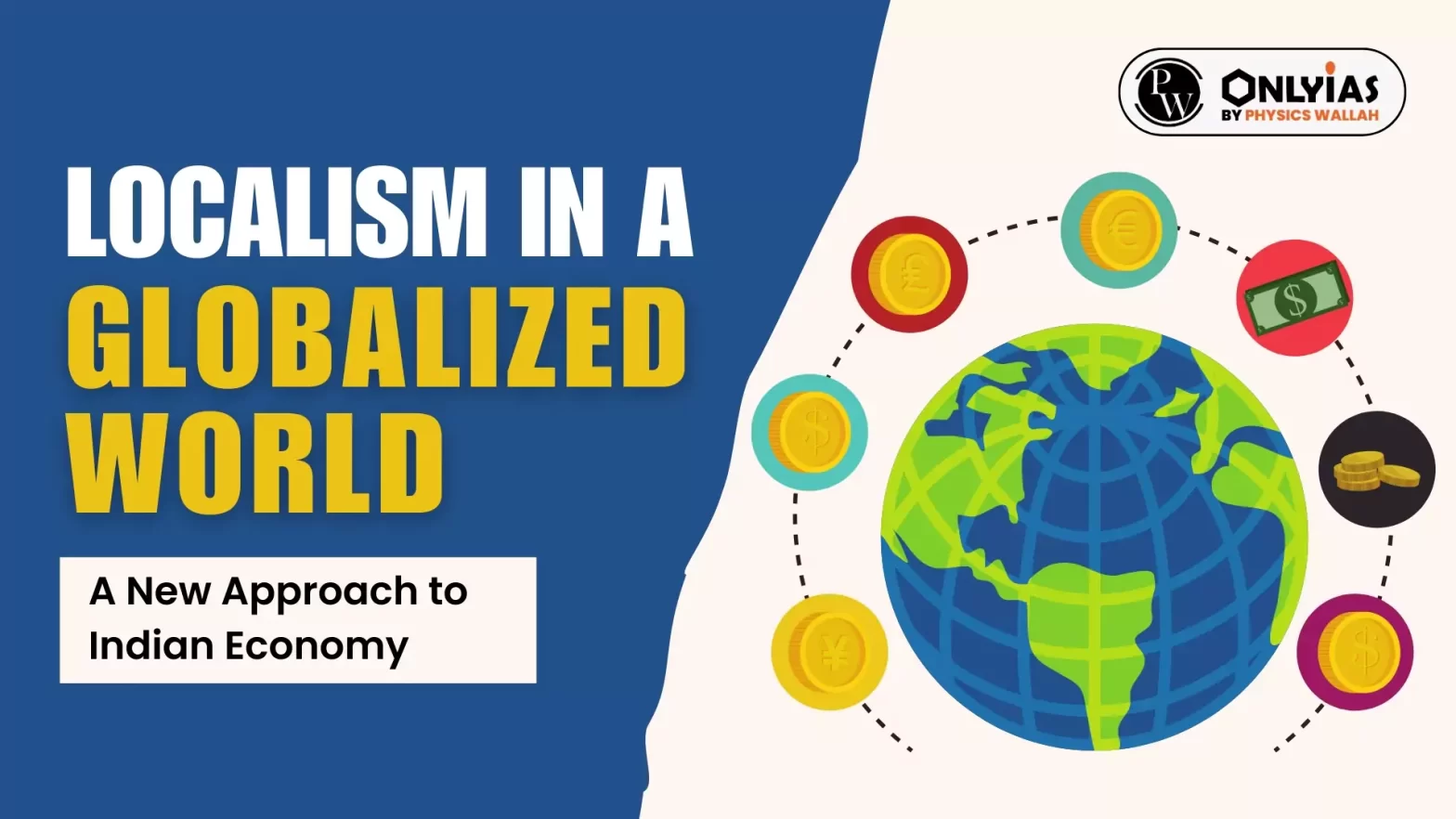Context:
This editorial is based on the news “Changing the growth paradigm” which was published in the Hindu. Local solutions are the way to solve global systemic problems rather than western-dominated theories of economics.
Perspective on Indian Economy as per the Author:
- Increase in Gross Domestic Product (GDP) not a primary indicator of Economic health:
- Shape and distribution of wealth within the economy matters more than its sheer size.
- High GDP does not mean higher income for the population: Merely increasing GDP does not necessarily improve citizens’ well-being if it fails to translate into higher income for the population.
- Emphasis on creating decent jobs and addressing income distribution issues: The focus on trickle down effect to address issues of income inequality and social conditions had led to growing inequality in India. The factors such as job quality and income distribution critical for the economic progress of a nation.
Inclusive and sustainable development: A New Approach to All Economies in the World
- The One Path of development for all : All economies in the world develop through similar stages. First, populations move from agriculture to industry, and then to services. Simultaneously, they move from rural to urban is
- According to this theory of progress, India has not developed sufficiently because both industrialisation and urbanisation have been too slow.
- With the present model of progress, India must use more fossil fuels to propel economic growth. This has become a bone of contention in global climate negotiations, where all countries are expected to make equal sacrifices to save the global climate.
Therefore, India must find a new paradigm of progress, for itself and for the world, for more inclusive and environmentally sustainable growth.
Transition From Fossil Fuels
- Fossil Fuels are used in the production and the distribution of foundational materials for modern civilization. They provide and support the basic needs of habitation and economic development.
- However, transitioning away from fossil fuels involves the development of renewable technologies and a significant shift in the production processes of these basic materials.
- The transition is a time-consuming process due to the intricate links between these materials and fossil energy.
- The challenge lies in the extensive infrastructure and systems built around fossil fuels, and replacing or transforming them requires substantial time and effort.
- The issue of food security should be given priority, even as societies work towards transitioning to more sustainable energy and materials.
Local Solutions Are the Way Forward to Indian Economy
-
Gandhian” Solution For Indian Economy and Social Progress:
-
- The local systems solutions, cooperatively developed by communities in their own villages and towns, are the way to solve global systemic problems of climate change and inequitable economic growth.
-
India Should Take Advantage of Its Present Realities:
-
- Sixty-four per cent of Indian citizens live in rural areas
- A majority work on farms, and in small industries in rural India
- Rather than trying to catch up with rich countries on their historical development paths, India should take advantage of its present realities.
Conclusion
The time has come to go back to old solutions to go to the future. Rural Bharat can be a university for the world, producing innovations in institutions and policies for inclusive and sustainable growth.
Also Read: Viksit Bharat @2047
| Prelims PYQ (2017):
Which of the following has/have occurred in India after its liberalization of economic policies in 1991?
1. Share of agriculture in GDP increased enormously.
2. Share of India’s exports in world trade increased.
3. FDI inflows increased.
4. India’s foreign exchange reserves increased enormously.
Select the correct answer using the codes given below:
(a) 1 and 4 only
(b) 2, 3 and 4 only
(c) 2 and 3 only
(d) 1, 2, 3 and 4
Ans: (b) |
![]() 24 Feb 2024
24 Feb 2024
